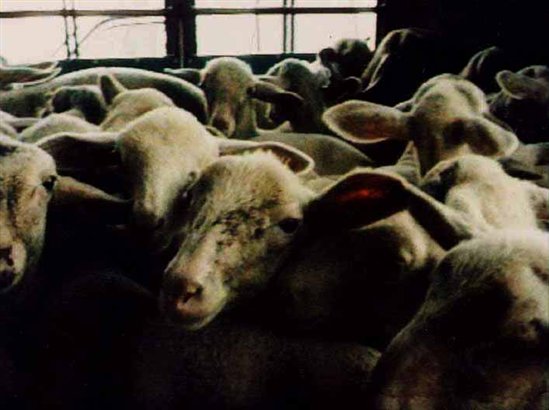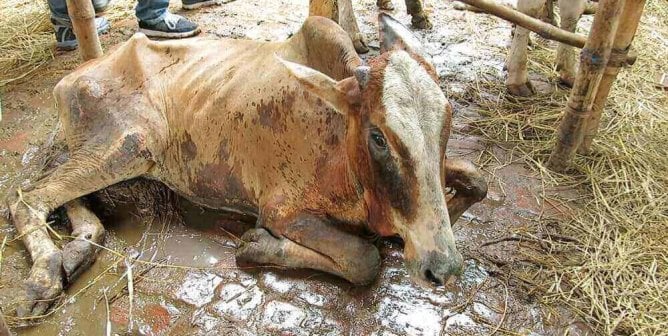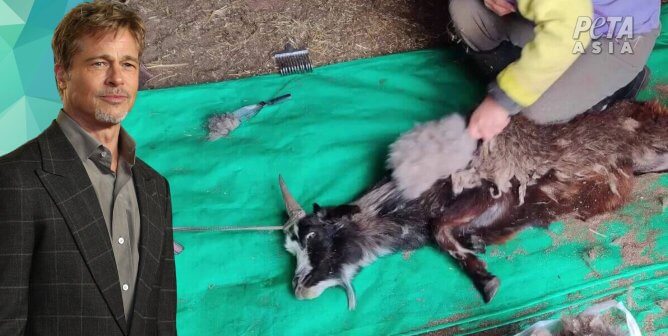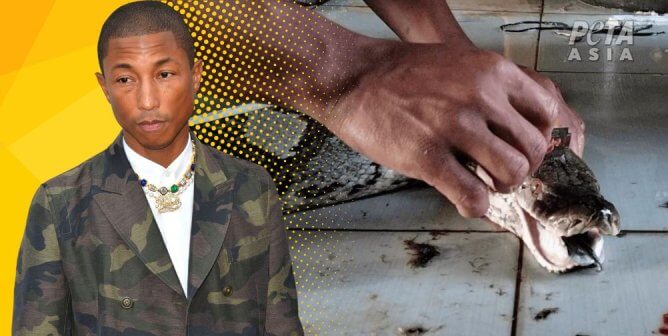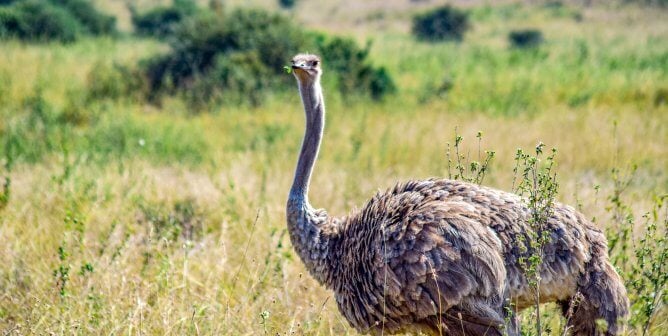Live Export by the Wool Industry
Every year, around 3 million sheep undergo the cruelty of live export from Australia to the Middle East and North Africa. These sheep are slaughtered after enduring grueling journeys on extremely crowded, filthy, disease-ridden ships. The voyage can last days or even weeks, and the sheep can be exposed to all weather extremes.
Many sheep fall ill or starve to death because they are not used to the pellet food provided onboard. Lame sheep are trampled, unable to lift their faces from the feces-laden floors. The crowding and heat stress can lead to diseases such as conjunctivitis (“pink eye”) and salmonellosis.
An incident in which 20,000 sheep were stranded at sea for more than 40 days after their ship was refused port in Bahrain showed how helpless the Australian government is once these animals leave its shores. When the sheep were finally unloaded in Pakistan, thousands of them were reportedly killed by being beaten, stabbed, and even buried alive, despite protests from the Australian government.
In 2012, 19,407 sheep died on live-export journeys. A mortality rate of up to 2 percent of sheep and 1 percent of cattle is considered acceptable by the Australian government.
When the survivors arrive at their destination, they are often dragged from the ships and thrown into the backs of trucks and cars. Eventually, most will have their throats cut while they are still conscious, as Halal slaughter standards dictate. Some sheep are slaughtered en masse in lots, whereas others are taken home and slaughtered individually by the purchasers. Muslim countries require that animals be slaughtered according to Halal regulations, but forcing animals to endure these journeys just so they can be killed in a Muslim country is no longer necessary on account of the numerous slaughterhouses in Australia that possess Halal certification. There is simply no viable reason for live export.

